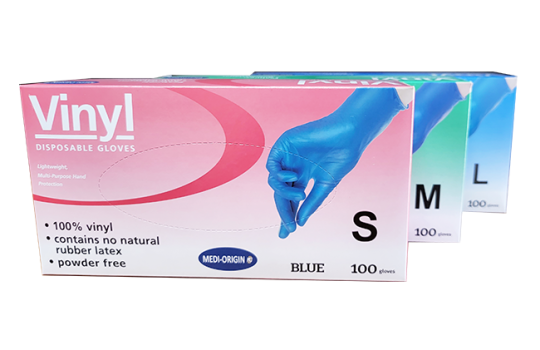An in-depth guide to nitrile gloves
January 3, 2023 2023-02-24 3:28An in-depth guide to nitrile gloves

<strong>An in-depth guide to nitrile gloves</strong>
Nitrile Gloves: What Are They?
Nitrile gloves offer protection for the hands. The material used to make the gloves is a substance known as nitrile, which is chemically and puncture-resistant.
What Are Nitrile Gloves Made of?
A synthetic copolymer called nitrile is created when butadiene and acrylonitrile combine. Nitrile gloves were initially more expensive than latex gloves when they first came into the market because of the additional processing required to make them.
But as technology has developed, nitrile glove production has become more efficient and less expensive. These days, nitrile gloves are priced on par with latex gloves. In comparison to latex, nitrile material has a reduced allergy rate.
What Are the Purposes of Nitrile Gloves?
For trade-based and industrial works, nitrile gloves are frequently used.
The use of nitrile gloves is common among technicians and mechanics.
Nitrile gloves—are they appropriate for mechanics?
In Australia, mechanics prefer black nitrile disposable gloves over any other colour. In the Australian summer, black nitrile disposable gloves with minimal sweat technology are ideal for mechanics and outdoor tradies
Do Nitrile Gloves Contain BPA?
Gloves made of nitrile are free of BPA, latex, phthalates, vinyl, MBT, and powder.
Nitrile gloves are waterproof, right?
Gloves made of nitrile are waterproof, yes. Nitrile gloves are highly chemical resistant. Since nitrile is made from rubber, it is waterproof by nature.
How Long Do Nitrile Gloves Stay Effective?
Although nitrile gloves are durable for a long period, they will eventually deteriorate like any natural substance. Make sure to store your box of nitrile gloves away from the heat and out of the sun to maintain their longevity.
What Are the Protections of Nitrile Gloves?
The hands of the wearer are shielded by nitrile gloves. The nitrile substance protects the wearer’s hands from contamination and prevents them from contaminating everything they are touching or touching another surface.
The most essential property of nitrile is that it resists a variety of common chemicals and substances in addition to being waterproof, greaseproof, and oil proof. Because of their high level of puncture resistance and dextrous strength, nitrile gloves are very frequently employed in the medical sector.
Nitrile gloves: Are they impermeable?
It’s crucial to keep in mind that nothing is ever completely impermeable. Although some chemicals, especially strong grade chemicals, will eventually pass through, nitrile material does have a higher chemical resistance rate than latex material. Nitrile gloves are a solid option for hand protection against common chemicals, yet, for an everyday work glove.
Can you recycle nitrile gloves?
In Australia, nitrile gloves can be recycled. Gloves made of nitrile can be recycled. However, they must be placed in a unique, distinct recycling bin rather than your regular recycling bin.
Nitrile gloves: are they biodegradable?
Disposable gloves made of nitrile will ultimately decompose. They do degrade more slowly than disposable latex gloves, though.
Gloves made of nitrile are hypoallergenic.
Compared to latex disposable gloves, nitrile disposable gloves have a lower allergy rate. When it comes to those with allergies or delicate skin, nitrile is the better option.
For mechanics gloves, which is better: nitrile or latex?
Latex gloves are weaker than nitrile gloves to a certain degree. Additionally, they have superior puncture resistance, greater chemical resistance, and come in colours that are specific to the trade industries. On the other hand, the medically related colours of blue and white are more frequently found on latex gloves. The majority of mechanics always choose black nitrile gloves since they require a robust, dextrous, chemical-resistant glove.





